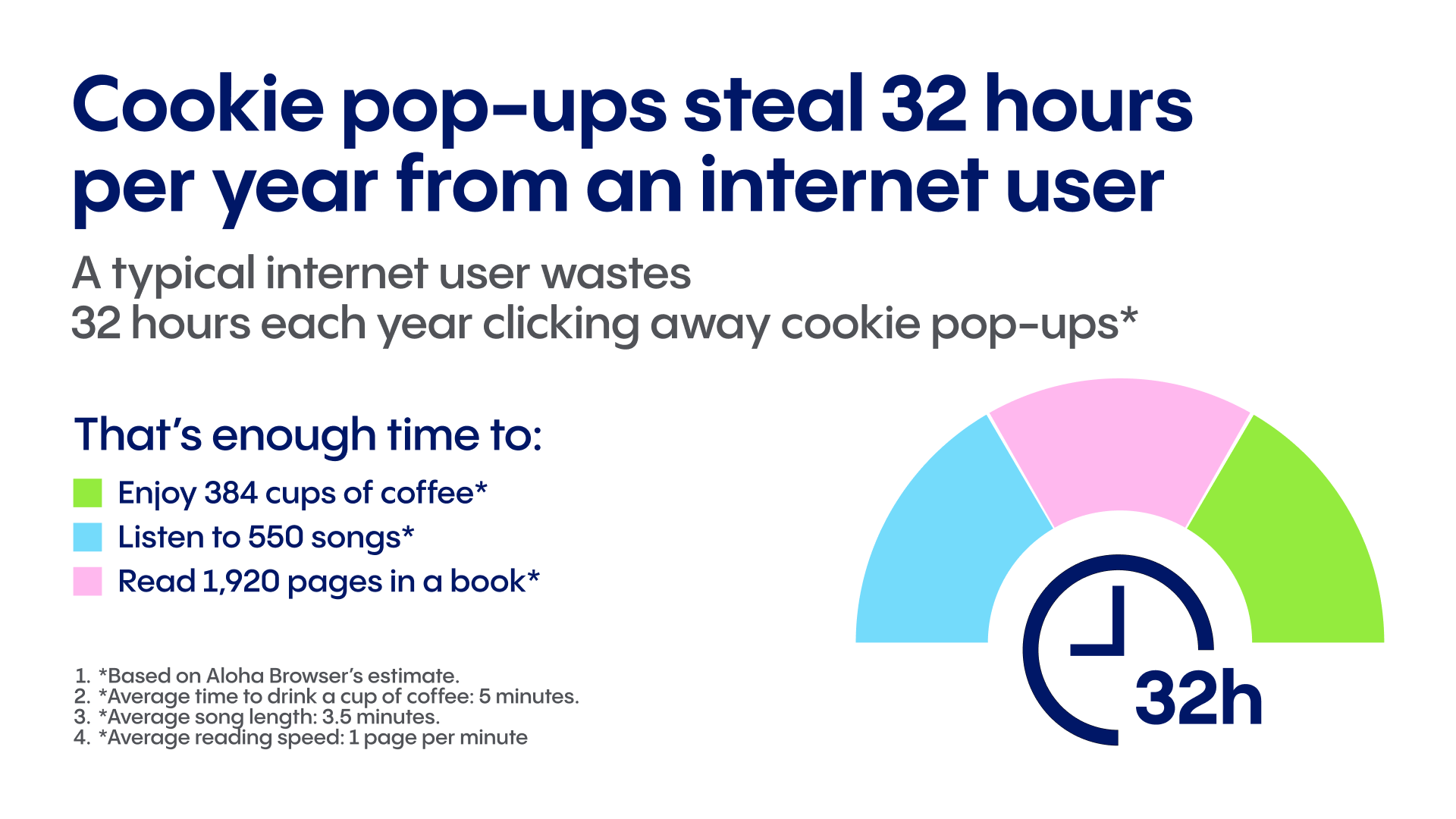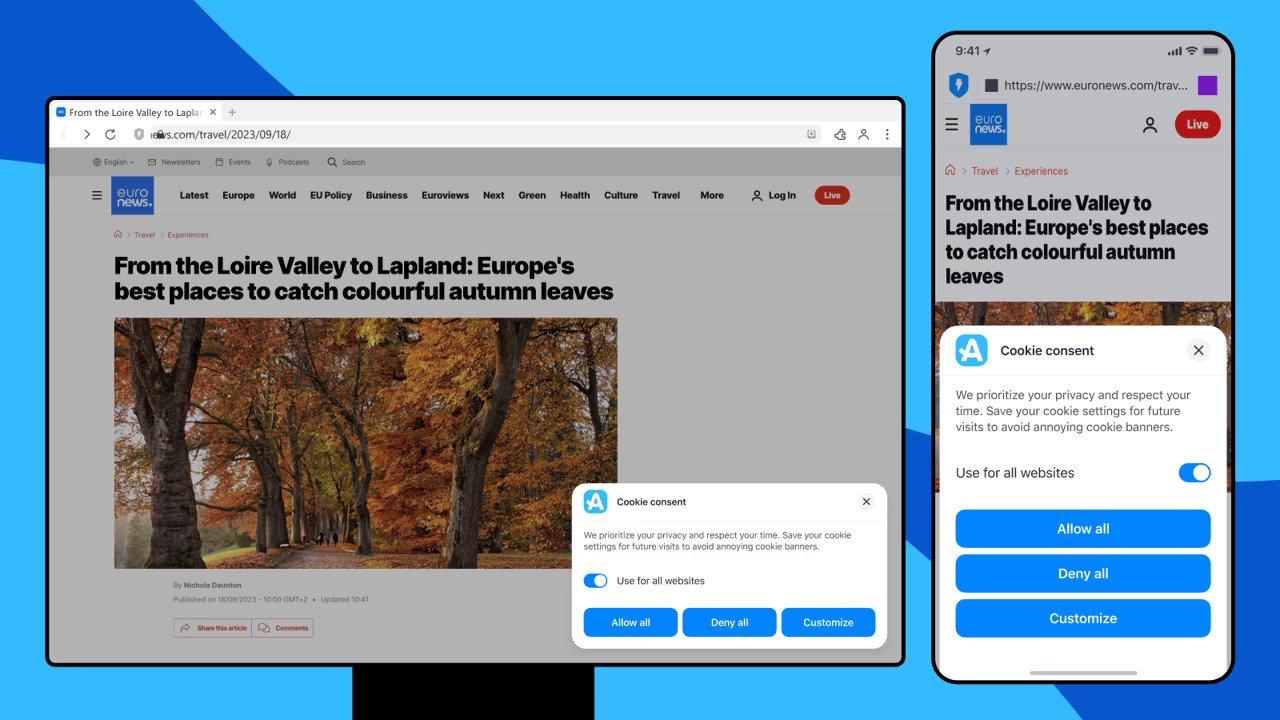While their logic is sound, I find cookie browsers enraging. I use Brave Browser and consent-O-matic to ease the pain, but I’m still left with a situation that’s far from ideal.
Today, privacy-first Aloha Browser sent an open letter to the World Wide Web Consortium (W3C), rallying industry leaders to eliminate “annoying cookie banners” while protecting user privacy.
Founded in 2015, Cyprus-based Aloha Browser aims to make digital freedom and digital privacy accessible to everyone. Through its privacy-first web browser and Private AI Assistant, it offers good UX, unparalleled data protection, security and easy access to online content anytime, anywhere.
According to the Advance Metrics Analysis, nearly 70 per cent of consumers either close or disregard the cookie banner entirely, resulting in data collection vulnerability.
Time wasted
According to Aloha’s estimate, the average internet user wastes 32 hours per year clicking away cookie pop-ups — which equates to 760 lifetimes per day when multiplied by the number of total internet users. In response, many users resort to ad-blockers, which remove these prompts entirely but may still leave them vulnerable to unwanted data collection.

With its W3C outreach, it aims to create a new industry standard that gives users more control over their data and simplifies cookie consent management.
A one-and-done solution in the browser
The company proposed a “one-and-done” solution to address the GDPR cookie consent shortcomings: move cookie consent management from individual websites to the browser level.
Aloha’s solution specification and an example of its implementation are open-sourced in its public GitHub repository.
“We’re committed to protecting human privacy and saw an opportunity to make a huge impact by simply shifting cookie consent management to the browser level,” said Andrew Frost Moroz, Founder of Aloha Browser.
“This simple shift gives users a consistent, easy-to-use interface to manage their privacy preferences across all websites. We also open-sourced our technical specification so that industry players can collaborate in building a more private, user-friendly internet for everyone.”
Aloha’s approach enhances the effectiveness of current consent management practices while maintaining compliance with GDPR and other privacy regulations.
“The current implementation of GDPR cookie consent management has created an ironic situation where attempts to protect privacy are, in fact, leading to more data collection, rather than less,” added Andrew Frost Moroz.
“We cannot accept a situation where, instead of making conscious decisions about what data can be collected by a website, consumers, being overwhelmed by the frequency and complexity of cookie requests, choose the easiest and quickest path—either they ignore cookie banners or accept all cookies”.
Aloha’s Cookie Consent Management solution addresses this issue and provides a more user-centric and effective method for privacy management.
It is designed to eliminate the constant barrage of cookie pop-ups by allowing users to set their cookie preferences just once, at the browser level. These preferences are then automatically applied to every website visited, eliminating the need for per-site cookie pop-ups. This unique approach reduces interruptions and ensures that user privacy decisions are meaningful and informed.
This new feature will be launched in Aloha Browser in the coming weeks.
It offers global consent options, allowing users to "Allow all" cookies, "Reject all" cookies, create custom settings for different cookie categories, or customise cookie preferences for specific websites. The browser securely stores these consent preferences and implements a standardised API for websites to query the user's consent status.



Would you like to write the first comment?
Login to post comments